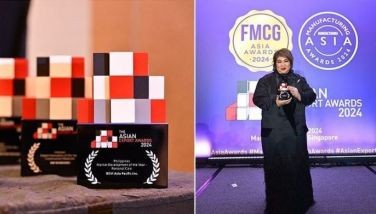Planning for elite sports
Last week, as part of our benchmarking with best practice in different countries with respect to strategic planning for elite sports, we provided some highlights on the work done by the Elite Sports Committee (ESC) of Hong Kong (HK) to provide elite training programs for HK’s top athletes with a view to achieving international sporting success. Incidentally, HK won its first Olympic gold medal in the 2000 Sydney Olympics, courtesy of the sailing sport.
Upon their appointment, the members of the ESC organized a brainstorming session where they discussed various issues. As a result of the brainstorming sessions, the ESC set up two Ad Hoc Sub-Committees to allow for more focused discussion on specific topics relating to sports elite sports development. These sub-committees, namely Selection and evaluation of Elite Sports (SEES) and Support to Elite Athletes (SEA) were established in August 2004 with their terms of reference described below.
SEES: to review and advise the ESC on selection criteria for elite sports; to review and advise the ESC on resources allocation to elite sports; and to review and advise ESC on an objective mechanism to classify elite athletes within the elite sports training system.
SEA: to review and advise the ESC on current athlete support framework (technical, personal, educational, vocational development); and to explore support from governmental, non-governmental and corporate sectors for elite athletes.
These two Sub-Committees were tasked to make recommendations to the ESC in respect of their assigned subjects, with a view to formulating a preliminary blueprint for the development of elite sports in HK for submission to the Sports Commission and Chief Executive.
Not wanting to waste time, even while discussion within the two Sub-Committees were still in progress, a consensus was reached that a targeted and result-oriented approach should be adopted in respect of elite sports development in HK.
The Sports Commission realized that, while HK athletes were being prepared at that time (January 2005) for the forthcoming major games including the Asian Games 2006 in Doha, Olympic Games 2008 in Beijing and East Asian Games 2009 in HK, there was a need for a long-term strategic policy on selection and evaluation of elite sports together with a comprehensive support system to HK’s elite athletes in order to enhance their medals hopes in these games and those beyond.
The ESC reiterated its commitment to completing its task while at the same time it expressed the need to be prudent and to proceed with due caution given the far-reaching impact on the future development of HK elite sports.
Canada’s program to increase its medal haul in the summer Olympics started in January 2007. The objective was to finish within the top 16 (based on all medals won) in the 2008 Beijing Olympics. Canada ended up with 18 medals in a tie for 14th place with Spain, another former Olympics host. Spain however won five gold medals against Canada’s three. Canada had nine silvers and six bronzes, compared with Spain’s 10 and three. The modest top-16 target was set because RTE increased funding had not yet had time to take full effect.
The Canadians were spending $12 million for the summer Olympics and other elite sports competitions until its “Road to Excellence” (RTE) program kicked in with an additional $8 million in February 2008. The budgets for succeeding years are increasing: $17 million in 2007-08; $20 million in 2008-09; $28 million in 2009-10; and $36 million in 2010-11.
The RTE target is a top-12 medal ranking in the overall standing for the 2012 summer Olympics in London. In 2004, in Athens, Canada was in 21st place overall after winning three gold medals, six silvers and three bronzes.
These targets and expenditures have to be benchmarked with those of the United Kingdom (UK), the next host of the Olympics, and Australia, which has what is regarded as the most successful sports development program in the world.
Alex Baumann, a double gold medalist at the 1984 summer Olympics, and now director of the Canadian Olympic Committee’s RTE program, notes that the U.K., which ranked fourth overall in Beijing with 47 medals, of which 19 were gold, has earmarked $600 million for high-performance sports over a six-year span culminating in 2012. On the other hand, the Australian Sports Commission is pushing for an additional $200 million, to supplement $250 million in existing funding. The Australians were in fifth spot in Beijing with 46 medals (14-15-17).
The CanWest News Service, Windsor Star says Baumann is intimately familiar with the Australian sports system having stayed in Australia for 15 years, the last four of which were in Brisbane as head of the Queensland Academy of Sport.
Next week, details of how Canada approaches elite sports development.
- Latest
- Trending































